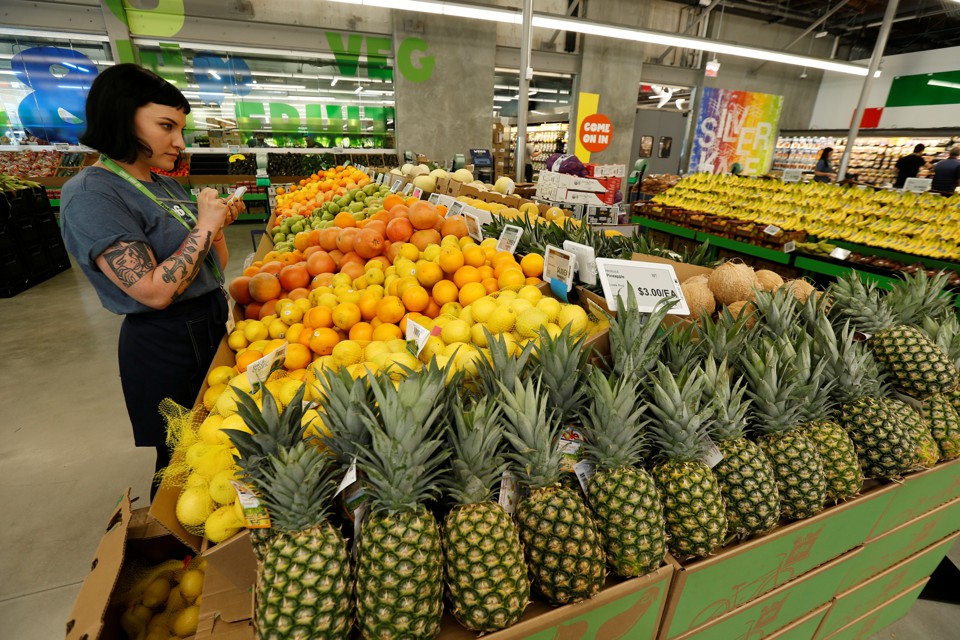The Retail Industry Changed Last Week...NGPF Has Resources Aligned To These Current Events
This has been a big week of news related to the Retail Industry in the U.S., with implications for the economy, jobs, shoppers, and investors. This post will explain the big events for the week, their implications for you and your students while also providing activities and lessons that are aligned to these current events.
What’s Happening?
- US Retail Sales declined month-over-month in May, suffering its biggest decline in 16 months. Coupled with lower inflation, this data suggests the US economy is weakening, since Retail Sales are a measure of consumer spending, which represents more than 2/3 of aggregate demand in the US economy. (Reuters, June 14, 2017)
- The Board of Governors of the Federal Reserve, the central bank of the US, decided to raise the Fed Funds rate target, which increases interest rates for borrowers and rates of return for savers. This is usually an indication the Fed is attempting to slow the pace of healthy economic growth, is growing more concerned about inflation, and a peak in the business cycle. (Retail Crowd, June 15, 2017)
- Amazon, the global e-commerce retailing giant, announced an offer to acquire leading organic grocery retailer, Whole Foods Market for $13.7bn. (Washington Post, June 16, 2017)
- Wal-Mart announced an offer to acquire innovative menswear e-commerce superstar, Bonobos, for $310mm. (TechCrunch, June 16, 2017)
________
Financial Education Resources Aligned with Current Events in the Retail Industry

Future Careers and Innovation
- Amazon has built an empire principled upon technological innovation and efficiency in delivering any product desired to consumers. Operations are so efficient and highly automated, that only one minute of a human’s time is required to process and ship packages from its warehouses! (CNN, October 2016)
- Amazon’s potential acquisition of Whole Foods Market raises fears of mass-automation of jobs at the grocery retailer (Washington Post, June 16, 2017) despite pledges from Amazon that they will not layoff cashiers en masse. (CNBC, June 16, 2017)
- Questions for Students:
- What careers will likely be in higher demand following the recent news in the retail industry? What jobs will be in decline or at risk of automation?
- What career advice would you give to Whole Foods Market employees? Why?
- Looking for an aligned activity?
________
Comparison Shopping in the e-Commerce Era
- Consumers should expect lower prices for groceries with Amazon using its highly-efficient supply chain to reduce costs at Whole Foods. Additionally, if consumers actively compare prices between brick-and-mortar grocery stores and online grocery “stores”, such as AmazonFresh (that will soon be able to deliver from current Whole Foods locations), they stand to benefit even further. (CNBC, June 16, 2016)
- Amazon and Wal-Mart have demonstrated they are determined to provide low prices and a great customer experience both in brick-and-mortar locations and online through e-commerce. Who will win? Consumers if they are savvy comparison shoppers. (TechCrunch, June 16, 2017)
- Questions for Students:
- What does a “highly-efficient supply chain” mean, in your own words?
- Do you think that Amazon may be able to deliver groceries to your home at a lower total price (delivery + cost of groceries) than shopping at your local conventional grocery store? Why or why not?
- What do you think Amazon’s purchase of Whole Foods Market will do for the growth of home delivery of groceries? Why?
- Looking for an aligned activity?
- Check out COMPARE: Comparison Shopping in College to allow students the experience in making an informed choice among several options for big-ticket purchases.
- This recent blog post, “Shopping in the Amazon Era” includes links and questions for student discussion.
________
Investing & Economic Uncertainty
- Recent news indicates economic uncertainty. Recent consumer spending and inflation data suggest a weakening economy. (Reuters, June 14, 2017) Rising interest rates courtesy of the Federal Reserve suggest the central bank wants to put the brakes on an overheating strong economy. (Retail Crowd, June 15, 2017) Uncertainty increases the risk of investing, particularly in the short-term.
- Uncontrollable and unknown factors to investors, such as corporate actions and news, can dramatically impact the price of individual stocks. Kroger’s, a grocery retailer with brick-and-mortar stores across the US, saw a nearly 30% decrease in its stock price over two trading days. (CBS Marketwatch, June 15, 2017). Meanwhile, Whole Foods saw its stock price nearly increase 30% following the surprise announcement from Amazon and speculation that there may be other interested buyers of the grocery retailer. (CNBC, June 16, 2017)
- Questions for Students:
- A friend tells you “It is best to invest in low-cost index funds rather than individual stocks”. Use evidence from the recent news in the Retail industry to agree/disagree with your friends’s statement. Explain your reasoning.
- What do you think will be the impact on Amazon’s business and stock? What about the impact on its competitors like Wal-Mart and Target? What about the impact on other grocery stores that compete with Whole Foods? Why?
- Do you think it is good to invest in the Retail industry for the next 10 years? Why/why not?
- Looking for an aligned activity?
- ANALYZE: Think You Can Beat the Stock Market to allow students to experience the uncertainty associated with volatility in returns from trying to pick stocks.
- EXCEL: Asset Allocation to provide students with a solid base in asset allocation among low-cost, highly-diversified index funds.
- Full lesson plan and resources about Stock Investing.
/cdn.vox-cdn.com/uploads/chorus_asset/file/3779700/BONOBOS_Andy_Dunn._Photo_credit-_alexander_thompson.0.jpg)
About the Author
Hari Vasu-Devan
As a young Indian immigrant, Hari was extremely privileged to learn about financial literacy by way of his parents....
SEARCH FOR CONTENT
Subscribe to the blog
Join the more than 11,000 teachers who get the NGPF daily blog delivered to their inbox:
MOST POPULAR POSTS
3









